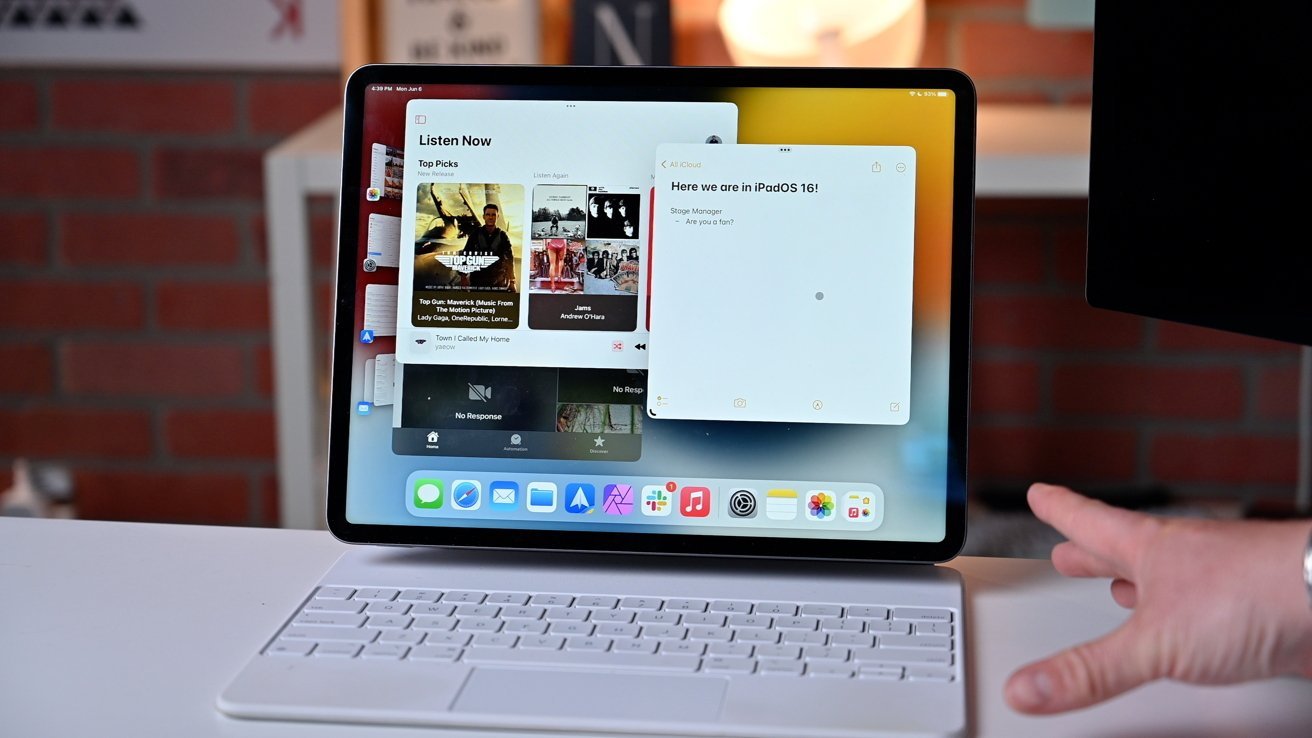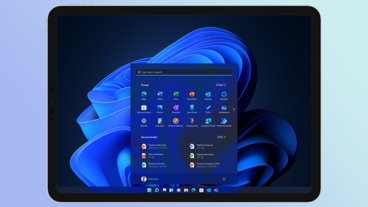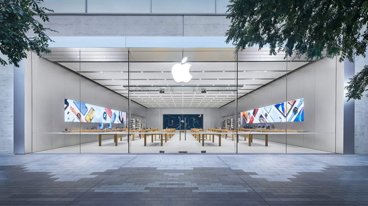Code in the iPadOS 16 beta has revealed that that Apple — and only Apple — could possibly enable Stage Manager on iPads without the M1 processor.
Apple will not add Stage Manager to pre-M1 iPads because of performance concerns and capabilities that simply will not be changed by the release of iPadOS 16, Apple has confusingly said in different ways since WWDC. But, a setting in code makes it clear that they've considered it, and have tested it.
After a few days of conflicting statements about why the feature was limited, Apple Senior Vice President Craig Federighi said in an interview on June 16 that the feature was only on M1 iPads.
"I mean, we would love to make it available everywhere we can," Apple's Craig Federighi said recently about the M1 limitation. he said. "[But it's]only the M1 iPads that combined the high DRAM capacity with very high capacity, high performance NAND that allows our virtual memory swap to be super fast... we just don't have that ability on the other systems."
If only as proof that Apple really did try Stage Manager out on pre-M1 iPads, though, a new internal option has been found in the iPadOS 16 code.
The internal setting enables and disables "Chamois," Apple's codename for Stage Manager. Specifically it does this for what the code describes as "Legacy Devices." It is not a Settings toggle-switch, nor is it user-accessible in any way.
Conceivably, it's a sign that Apple's developers tested, and may still be testing, Stage Manager on older iPads, a report by 9to5mac on late Wednesday claims. It's more likely, however, that since the option cannot be accessed by users, that it simply hasn't been removed yet.
 William Gallagher
William Gallagher








 Marko Zivkovic
Marko Zivkovic
 Christine McKee
Christine McKee
 Andrew Orr
Andrew Orr
 Andrew O'Hara
Andrew O'Hara


 Mike Wuerthele
Mike Wuerthele
 Bon Adamson
Bon Adamson




-m.jpg)



17 Comments
of course they can. they’re just tired of people not upgrading from their four year old 2018 ipad pros since they’re still great devices that work great, and wanted to give some extra incentives. classic apple
Apple hasn't been as clear with its statements as it could have, and I suspect the reason is the feature can run on older hardware and, dare I say, acceptably well for many users.
Perhaps just by reducing the strain on older systems by not aiming for as high a resolution and reducing the amount of open apps could be enough.
It would be nice if someone just came out and provided clear answers to the follow up questions that have emerged so far.
Apple is basically saying 'we need this hardware to meet our user experience goals' and then evading the questions that arise from that statement.
For example, if the top resolution was reduced and less apps needed to be opened, would responsiveness, latency, overhead etc be suitable for users with older hardware?
Some might see this as Apple setting the bar deliberately high to make those hardware claims.
I think they should allow a restricted version on the A12Zs perhaps allowing Stage Manager to run on the iPad but not on an external monitor.
SM allows 4 groups of up to 4 apps, one set on the iPad and another set on up to a 6K external monitor. That's potentially 32 apps plus external monitor support.
Is that likely? No. But many older iPads like the A12X on the 2018 model only have 4GB of RAM and that's a far cry from the 8 or 16GB available on the new M1 iPads.
The A12Z in the DTK did run the full version of macOS... but with 16GB of RAM.
The limitation is marketing not technical Hair-force one would not have spend all that time dithering otherwise…